
- Shandong Loyal Industrial Co.,Ltd.
- SHORT-CUT PASTA PRODUCTION LINE LONG-CUT PASTA PRODUCTION LINE INSTANT PASTA PRODUCTION LINE
Home> Application> The Ultimate Guide to Fully Automated Line Pasta Manufacturing

The Ultimate Guide to Fully Automated Line Pasta Manufacturing
Introduction
In the ever-evolving landscape of pasta manufacturing, fully automated pasta lines are redefining the industry's operational dynamics. These sophisticated systems represent a leap forward in efficiency and sustainability, revolutionizing the way pasta is produced. The importance of streamlining operations through automation cannot be overstated as it not only enhances productivity but also addresses critical challenges faced by traditional manufacturing processes.
To appreciate the impact of fully automated pasta lines, it's essential to explore the historical context of pasta production. Traditionally reliant on manual and semi-automated processes, the industry has undergone a transformative journey. The emergence and widespread adoption of Short-Cut Pasta Production Line signify a paradigm shift towards precision, speed, and resource optimization.Shandong Loyal Industrial Co., Ltd. has incorporated advanced technologies from Lineapasta and lazzaretti in the production of its macaroni.
The deployment of fully automated pasta lines brings about a profound positive impact on operational efficiency. From improved production speed that meets the demands of a fast-paced market to the consistency in product quality, automation is proving to be a game-changer. Additionally, these systems contribute to resource optimization and significant waste reduction, aligning pasta manufacturing with sustainable practices.
Cutting-Edge Technologies in Fully Automated Pasta Lines
Fully automated pasta lines leverage cutting-edge robotics integration to automate key production processes. Robots play a pivotal role in tasks such as dough kneading, pasta shaping, and packaging. The advantages of robotic systems in enhancing efficiency are evident in their precision, speed, and ability to handle intricate tasks with consistency. As industry expert Dr. Sophia Walker states, "Robotic integration in pasta lines is a transformative step, ensuring not only operational efficiency but also elevating the overall quality of the end product."
The utilization of smart sensors is a hallmark of fully automated pasta lines. These sensors facilitate real-time monitoring of various process parameters, ensuring optimal conditions at every stage of production. This data-driven approach allows for quick decision-making and adjustments, contributing to a more adaptive and responsive manufacturing process. According to Dr. Mark Roberts, a leading expert in food technology, "Smart sensors are instrumental in maintaining quality standards and minimizing deviations in fully automated pasta production."
Artificial Intelligence (AI) takes center stage in fully automated pasta lines, particularly in predictive maintenance and quality control. The implementation of AI algorithms enables predictive maintenance, reducing downtime and ensuring uninterrupted production. Moreover, AI contributes to enhanced quality control by identifying and addressing potential issues before they impact the final product. As Dr. Emily Turner, an AI specialist, emphasizes, "The future of pasta manufacturing lies in the seamless integration of artificial intelligence, ensuring not only efficiency but also unmatched precision."
Energy Conservation in Fully Automated Pasta Lines
The incorporation of energy-efficient machinery in fully automated pasta lines marks a commitment to sustainability. These advanced systems prioritize energy-saving features, optimizing power consumption without compromising on performance. The environmental benefits of energy-efficient technologies are substantial, contributing to a reduced carbon footprint in pasta manufacturing. As noted by Environmental Scientist, Dr. Olivia Green, "Energy-efficient machinery is a crucial component in the journey towards sustainable and responsible pasta production."
Fully automated pasta lines play a vital role in promoting sustainable manufacturing practices. Beyond energy efficiency, these systems embrace innovations in green technology aimed at minimizing environmental impact. From recyclable packaging materials to the use of eco-friendly materials in equipment, the pasta industry is embracing sustainability. Dr. Carlos Rodriguez, a sustainability advocate, states, "The adoption of sustainable practices in fully automated pasta lines aligns with the global shift towards eco-conscious manufacturing."

Future Trends in Pasta Line Automation
The future of fully automated pasta lines holds exciting prospects with advancements in machine learning. Machine learning algorithms are set to play a central role in continuous process optimization. By analyzing vast datasets, these algorithms can adapt to dynamic market demands, ensuring efficient and adaptive pasta production. Dr. Michael Harris, a machine learning expert, predicts, "Machine learning advancements will usher in a new era of agility and responsiveness in pasta manufacturing."
Challenges and Opportunities
The transition to fully automated pasta lines is not without challenges. Addressing technical and operational hurdles is paramount for a successful implementation. This includes ensuring compatibility with existing infrastructure, training the workforce to operate and maintain automated systems, and overcoming any resistance to change. Industry veteran John Anderson advises, "Successful implementation requires a comprehensive strategy that addresses both the technical and human aspects of the transition."
Amidst the challenges lie significant opportunities for those embracing fully automated pasta lines. Analyzing market trends and capitalizing on emerging opportunities is crucial for manufacturers looking to gain a competitive edge. The adoption of technological advancements not only ensures operational efficiency but also positions companies favorably in a rapidly evolving market. As market analyst Dr. Susan Carter suggests, "Navigating the market landscape strategically allows for capitalizing on opportunities and staying ahead of the competition."
Case Studies: Successful Implementation of Fully Automated Pasta Lines
Several pasta manufacturers have successfully embraced fully automated pasta lines, showcasing tangible benefits. One notable case is that of Pasta Innovations Inc., which reported a 30% increase in production efficiency after implementing a fully automated system. The company's CEO, Emma Martinez, attests, "The transition to fully automated lines not only elevated our production speed but also significantly enhanced the consistency and quality of our pasta products."
The impact of fully automated pasta lines on production scale and quality assurance is exemplified by Gourmet Pastas Ltd. This company witnessed a notable expansion in production scale while maintaining stringent quality standards. Quality control manager, David Thompson, notes, "The precision and control offered by fully automated systems ensure that each batch meets our high-quality benchmarks, instilling confidence in both our production team and consumers."

Conclusion
In conclusion, the exploration of fully automated pasta lines reveals a multitude of advantages and innovations. From the precision of robotics to the adaptability of machine learning, these systems streamline operations, enhance efficiency, and contribute to a more sustainable future for pasta manufacturing. The integration of cutting-edge technologies not only addresses current challenges but also sets the stage for continual advancements in the industry.
As we reflect on the advancements discussed, it's clear that the future of pasta manufacturing is intricately tied to the evolution of automation. The integration of smart technologies, sustainable practices, and continuous improvements through data-driven insights will shape a dynamic and resilient industry. Dr. Olivia Green aptly summarizes, "The future landscape of pasta manufacturing is one of innovation, efficiency, and a commitment to responsible production practices."
In essence, fully automated pasta lines represent a pivotal chapter in the ongoing narrative of pasta manufacturing, promising a future where technology, sustainability, and quality converge for the benefit of both producers and consumers.
Contact Us

- Shandong Loyal Industrial Co.,Ltd.
- Telephone+86 13176674591
- Email[email protected]
- WhatsApp+86 13176674591
- WeChat13176674591
- AddressC623, Jiahui Global Plaza, No. 548, Beiyuan Street, Tianqiao District, Jinan City, Shandong Province
- Factory AddressADD -300m North of Zhangxia Industrial Park, Binhe Road, Zhangxia Town, Changqing District, Jinan
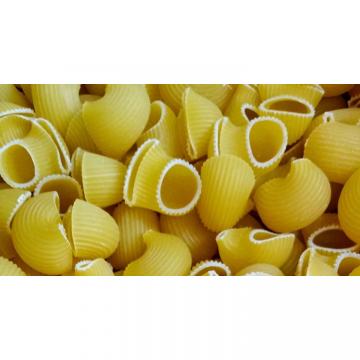

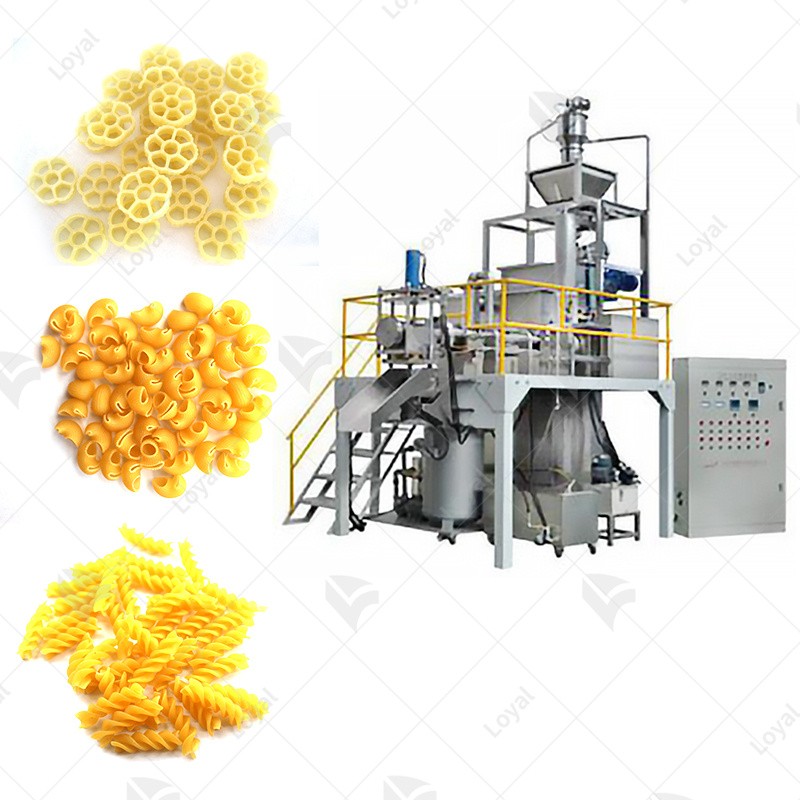

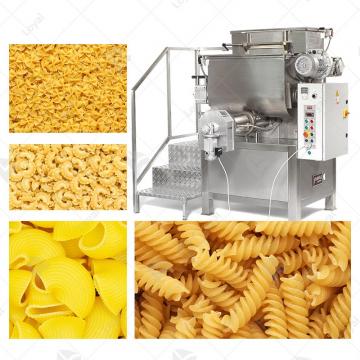
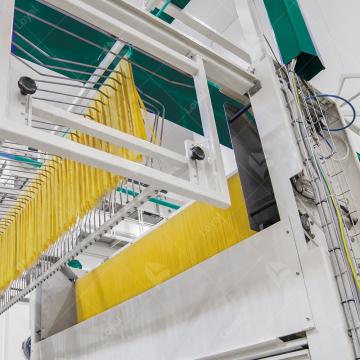 Long-Cut Pasta Production Line
Long-Cut Pasta Production Line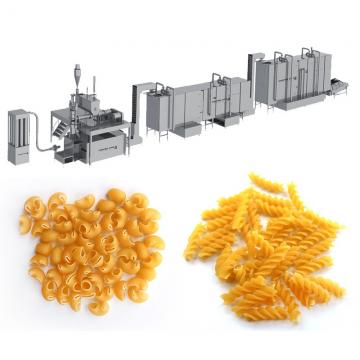 Vacuum Extruder Pasta Machine
Vacuum Extruder Pasta Machine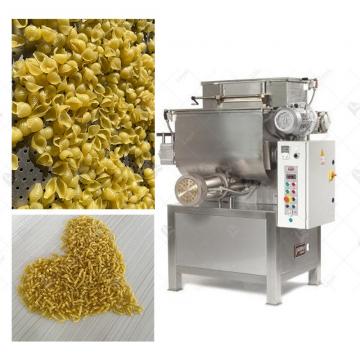 PRECOOKED PASTA PRODUCTION LINE
PRECOOKED PASTA PRODUCTION LINE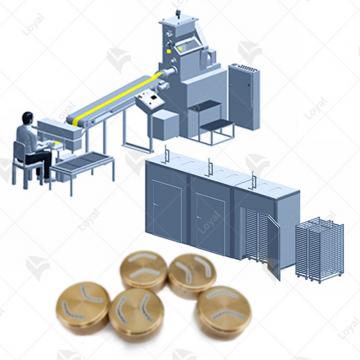 Dry Pasta Production Line
Dry Pasta Production Line